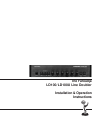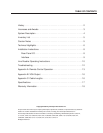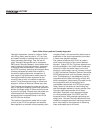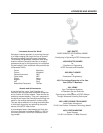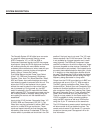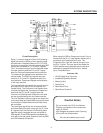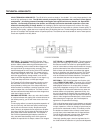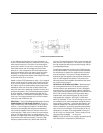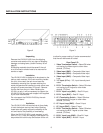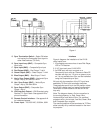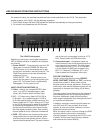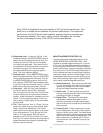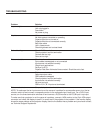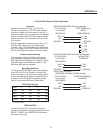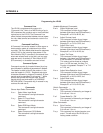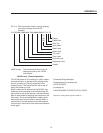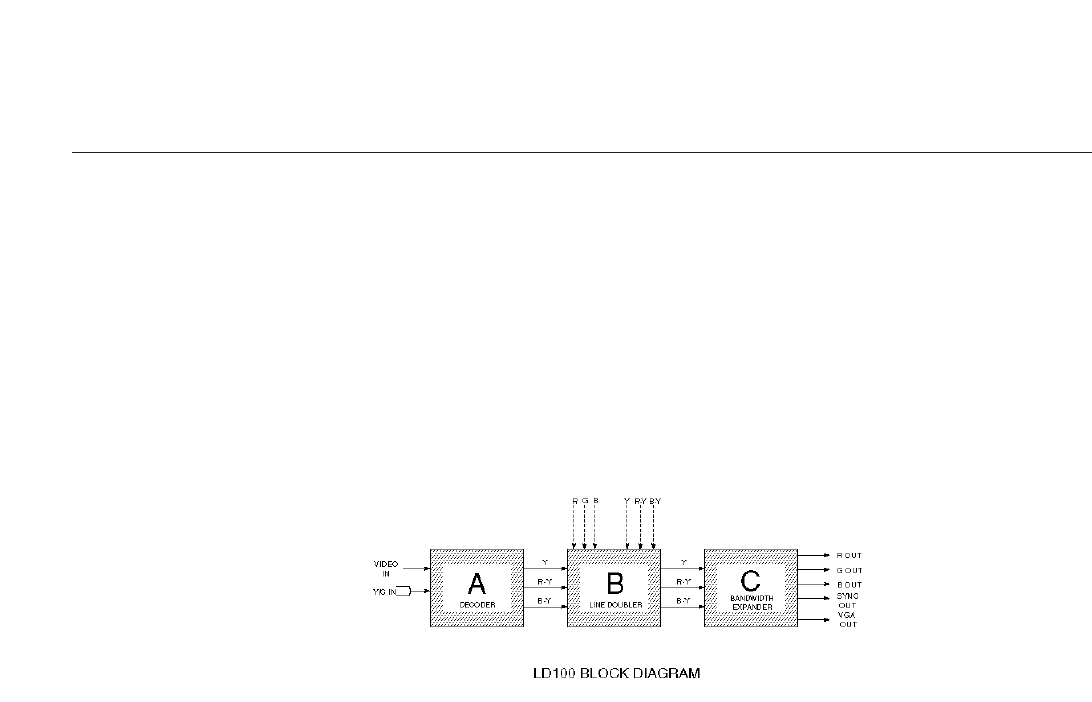
LD100 TECHNICAL HIGHLIGHTS – The LD100 is far more than simply a “line doubler”. It is a truly unique product in the
world of high performance video. The LD100 is actually a complex image processor that consists of three distinct
components – all utilizing patented Faroudja technologies and engineered into one chassis; the SuperNTSC
decoder , the Faroudja proprietary line doubler, and Faroudja’s innovative bandwidth expansion circuit that
allows for the sharpening of image details. Line doubling by itself is simple and inexpensive to achieve. But simply
doubling the lines of information is worse than doing nothing at all because the visual result is a picture of lesser quality. To
achieve film-like quality, a great deal more is required than just doubling the lines. The block diagram below provides a sim-
ple view of Faroudja’s multi-faceted solution for perfect pictures. The technical and visual benefits of each of these special
circuits are explained more fully below.
6
SECTION A – The LD100 SuperNTSC Decoder: Elimi-
nates COLOR BLURRING – The engineers of the 1940’s
(and the 1950’s, before and during the development of
color broadcasting), had no idea that video images would
one day be blown up as large as they are today. They
therefore designed the color section of the NTSC standard
with severe bandwidth restrictions. This causes colors in
various video images to “blur” and “smear”. These effects
are further aggravated by storage media, such as VHS
tapes, that further degrade the chroma or color signal. e.g.
– note how deep reds smear on VHS tape images.
The Faroudja LD100 utilizes proprietary circuitry to recre-
ate and further correct color details. Technically, this is
accomplished by making use of the sharper black and
white transitions to develop a correction signal that is then
used to sharpen the color transitions. The result is colors
that are restored with sharp details and video images that
retain their original crisp look.
RAINBOW PATTERNS – When you notice the fine detail
of a striped referees shirt rippling with colored rainbows as
the camera pans by, you’ve seen video cross-color inter-
ference.
This annoying artifact is caused by imperfect separation of
the color (chroma), and black and white (luminance) sig-
nals by the color decoder circuitry. Simple techniques
used commonly to separate the two signals can be effec-
tive most of the time, but occasionally are fooled by finer
pitch detail areas like the referees shirt. The decoder in
the LD100 has patented digital adaptive comb filter cir-
cuitry that eliminates decoding errors of this type and
enables the reproduction of sharper, cleaner color images.
DOT CRAWL and HANGING DOTS – This phenomena is
easily seen with large, highly colored, stationary graphics
like titles and credits. Dot crawl is a rapid upwards move-
ment of colored dots on sharp vertical transitions. Hanging
dots lie underneath all the colored horizontal transitions.
Both of these color aberrations are artifacts that appear
due to an imperfect color decoding process. The LD100
has two separate and patented correction circuits that
work to eliminate both of these distortions. The impact is
color transitions that are clear, sharp and natural.
SECTION B – THE LD100 Patented Line Doubler: elimi-
nates VISIBLE SCAN LINES – The secret of the LD100’s
uncanny ability to double the lines of information without
adding digital artifacts is in its unique ability to detect
motion and interpolate correctly to “fill in the blank lines”.
The Faroudja LD100 does this better than any other line
doubler thanks to its proprietary, patented circuitry. It is
the only line doubler in existence that can detect the dif-
ference between a film image that has been transferred to
video or video image that emanates from a video camera.
After detecting the image type, the LD100 adjusts its
algorithm to compensate accordingly.
This is critical because today’s home theaters are primarily
used to show films that were transferred to video whether
on tape, laserdisc or off the air (virtually all prime time pro-
grams are film transferred to video). The inability of other
line doublers to detect motion correctly is what causes
most of them to be unwatchable due to digital artifacts.
The LD100 offers sharper, uniquely clean, artifact-free
film-like images without visible scanning lines.
Historically speaking again, electrical engineers back in
the 1940’s knew the resolution of a picture tube depends
TECHNICAL HIGHLIGHTS



